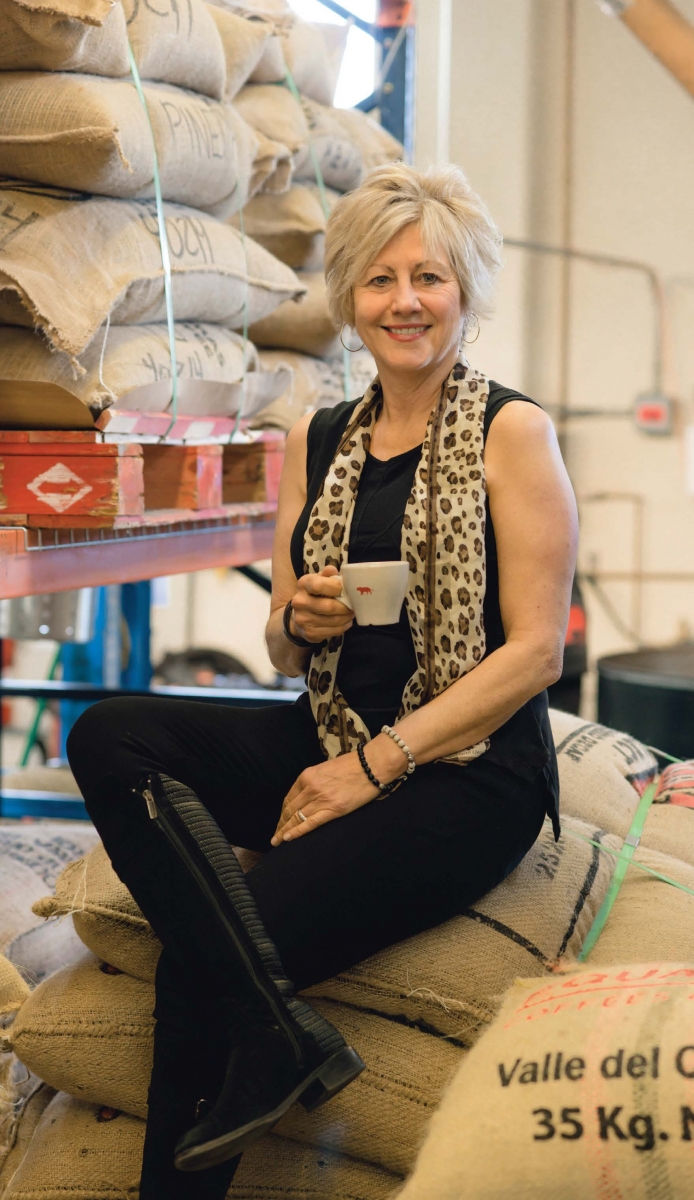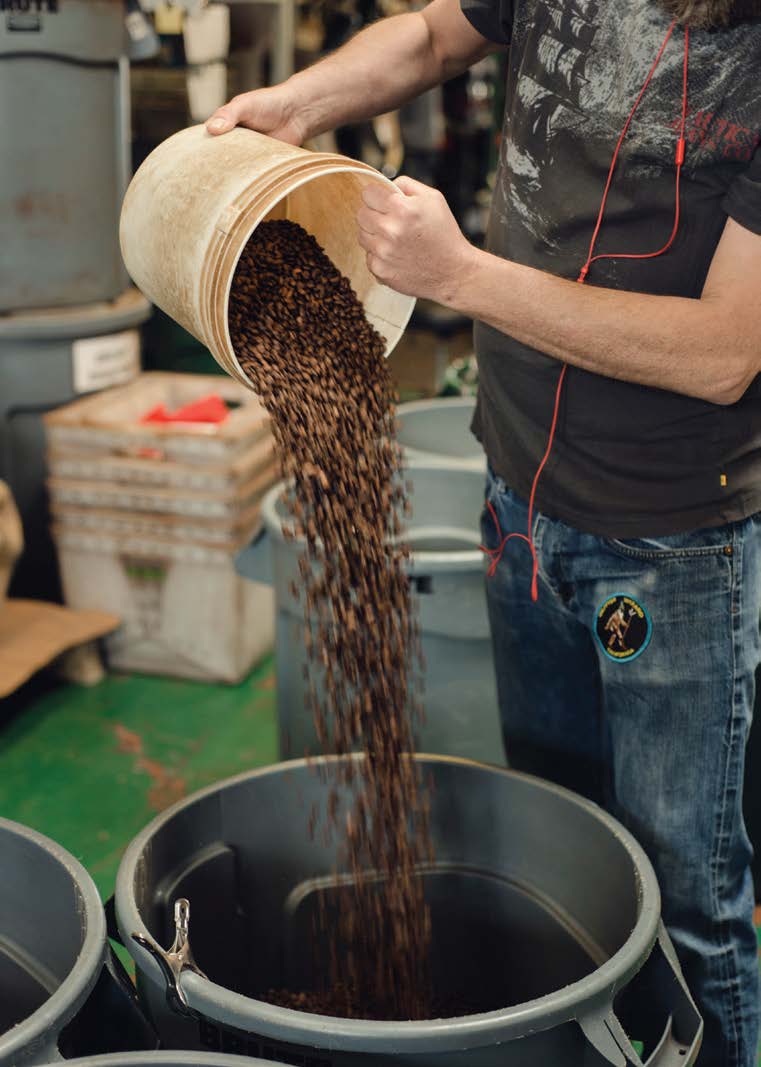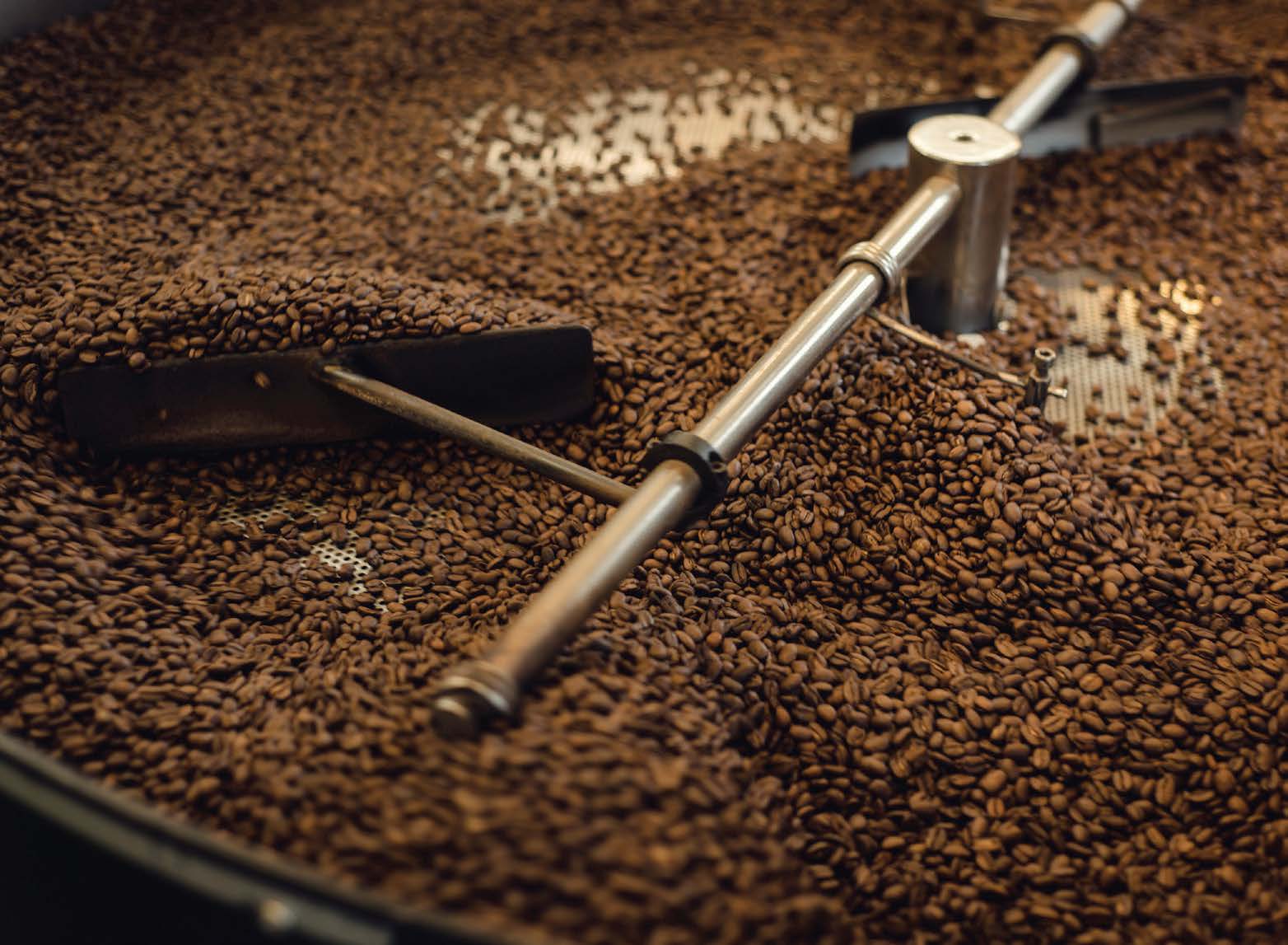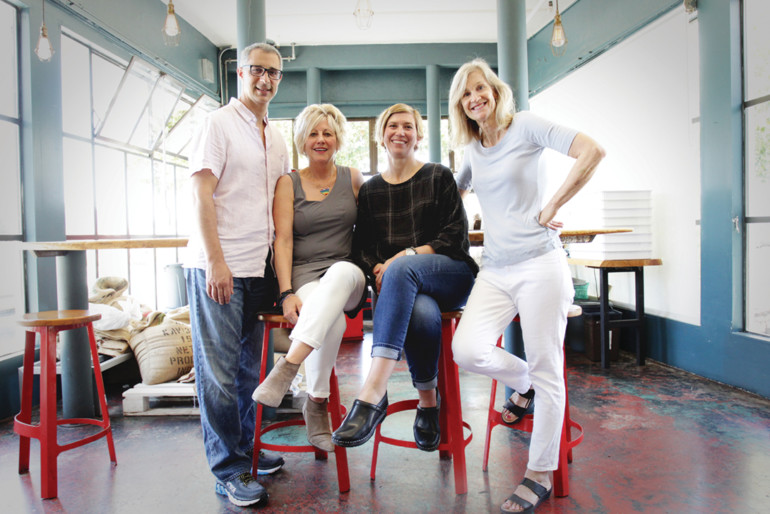WITH $1.1 MILLION in revenue falling out of the checkbook after Equator Coffees and Teas lost its largest customer, La Boulange, to Starbucks, CEO and co-founder Helen Russell knew she needed to tweak the business model. Already successful as a wholesale coffee roaster, with customers like chefs Thomas Keller of The French Laundry and Traci Des Jardins of Jardinière, the company pivoted to retail.
Visit any of the seven Bay Area Equator Coffees and Teas today and you might spot Russell talking to customers, doing press interviews or tasting coffee. And if you get a chance to chat with her about coffee, beans or the company’s sustainable coffee farm in the highlands of Panama that won a Good Food Award for its first-year harvest, you would never guess that her first cup of joe was Sanka, served to her by her dad.

Equator, launched with life-partner Brooke McDonnell, began out of a love of the cafe experience and a plan written on the back of a napkin at a Portland Starbucks in 1992. Back in the Bay Area, the duo noticed an increased interest in specialty coffee and in 1995 began roasting their own in their Corte Madera garage, eventually getting into mail order and then wholesale. The name came from the place where coffee grows best — the equatorial zone — and the Bengal tiger logo represents power and grace and their appreciation of coffee from Sumatra.
Equator is the first American coffee company to become a certified B Corporation (meeting rigorous standards of social and environmental performance, accountability, and transparency); it was named California Small Business of the Year in 2016 — the first LGBT-owned business to win that award — and was an early pioneer in building solid relationships with coffee producers. As if that cup wasn’t full enough, the company also finances environmental and social projects in coffee-producing countries and stays active in environmental stewardship and women’s empowerment.
What is the Equator design aesthetic?
Our stores reflect the communities they’re located in. No two Equator stores are alike. Internally, we call them snowflakes. We have our surf shop vibe in Tam Valley, and our flagship store in downtown Mill Valley has reclaimed redwood and a patio with 100-year-old railway rails that creates bar seating, giving a nod to how important the train service was in the ’40s. We have our cycling-themed store in Larkspur that’s in a historic building with a wall map carved out of wood showing local cycling trails. The common thread tying all our stores together is an amazingly executed crafted cup of coffee, served with kindness and hospitality, with the promise to honor our partnering farmers.
Life lessons learned working with millennials?
My young millennial team teaches me something new every day and keeps me on my toes. They are tech savvy, social and multifaceted. They also want transparency and feedback, which can be time-consuming but ultimately builds a collaborative culture. I have found the best way for me to connect with my Gen Y employees is by communicating and identifying shared values.
Most important virtue in an employee?
Trustworthiness, because in retail when there is cash there has to be trust. When I hire someone I think: would I give this person a key to my house? Actually, with our growth that question is no longer realistic; we now hire looking for kindness. We may not be able to teach friendliness but we can teach someone how to make a perfect latte.

What do you think about the #metoo movement as it relates to the coffee business?
My personal favorite hashtag is #shemeansbusiness. This can be interpreted in many ways depending on the situation. Recently news was delivered to our doorstep regarding sexual assault allegations against the owner of San Francisco’s Four Barrel Coffee. I thought as an industry we would somehow be spared this type of behavior.
If you could change one thing about the coffee business, what would it be?
Coffee growing is a very hard way to make a living. I would improve access to capital and markets for farmers and encourage more equitable trade arrangements.
What incentives or support to farmers that the company was part of are you most proud of?
We funded a coffee “pulp to protein” project in Tanzania, partnering with farmer Chido Govera to teach a group of women in Tanzania how to grow edible mushrooms from coffee waste. The women were not only able to feed their families during the lean months of the coffee harvest, but were also able to sell the mushrooms in their village as a cash crop.
What was the scariest thing about opening your first location?
You never know how any location will truly perform — especially your first. We had very little brand equity when we opened our little red building at Proof Lab. When I met with Will Hutchinson, co-owner of Proof Lab Surf Shop, it was initially to provide his guests with a cup of coffee while shopping. But after smelling the salt air, visiting the adjacent nursery, seeing the skate shop and hearing the sound of music lessons going on in the background, I just knew this would be our first retail store. Will looked at me and said, “I have always wanted to do a coffee shop here at Proof, but I don’t drink coffee.” I responded, “Well, I don’t surf — let’s do it!”
Any other endeavors you’re considering getting involved in at the moment?
I am very excited and inspired to learn more about locally based Conscious Kitchen. I recently met the founder, Judi Shils, and her passion is to break the cycle of prepackaged processed foods that are currently being served to our kids in schools and transition to healthy chef-prepared meals.

Did you go to business school, take business classes, or just have a lot of lemonade stands growing up?
I was the first to graduate from college in my family. I have a bachelor’s from Northeastern University. My true business acumen comes from reading Inc. magazine religiously for the last 25 years along with any business book or biography of successful entrepreneurs I could get my hands on. To be successful in any business or endeavor you have to be relentlessly focused, fairly intelligent and absolutely driven and have a passion for what you do.
Which local women are your inspiration?
There are so many. Grace Kraaijvanger is definitely one. She is the founder of The Hivery and has created a special place for women that not only is collaborative but also honors women supporting other women with one goal in mind: the creation of meaningful work. Another woman is Neka Pasquale, founder of Urban Remedy. She continues to evolve her vision and has created an epic food company that reminds me and so many others to take a moment and recognize that “food is healing.” And then another personal favorite because of her trailblazing journey is Mill Valley resident Joan Barnes. Forty years ago, Joan launched Gymboree and has experienced the highs and lows of being an entrepreneur at a great cost in health and family. I recently bumped into Joan on a trail walk and she was coming toward me as a vision of health, wisdom and beauty. So many of us stand on her shoulders.
Which part is the most challenging in today’s business: being an entrepreneur, a woman, a lesbian, or all three combined?
Definitely being an entrepreneur is by far the most challenging, from accessing capital to growing, pivoting and adapting. You are in a very dynamic and competitive space. It’s a lifestyle and a relentless pace, and I wouldn’t have it any other way.
What is a business mistake you made that you learned the most from?
Two things: putting someone in the wrong seat and not pivoting fast enough to change the situation, and not doing retail sooner. We stayed on the sidelines creating brand invisibility even though we were in wholesale for 17 years before we took the leap.
Where is your happy place in Marin?
With the community at our first Equator store at Proof Lab Surf Shop in Tam Junction. You never forget your first.
This article originally appeared in Marin Magazine’s print edition under the headline: “Helen Russell“.


